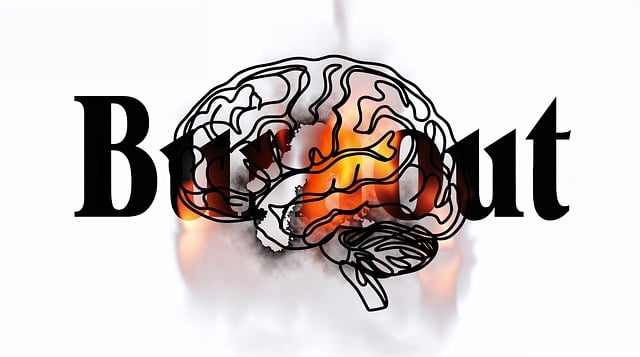Anxiety disorders, encompassing various conditions, significantly impact daily life. Professional anxiety treatment focuses on understanding distinct forms for tailored therapy, addressing symptoms like excessive worry or panic attacks. Options include CBT, DBT, group therapy, and medication to balance brain neurotransmitters. Holistic strategies, such as exercise, mindfulness, and balanced nutrition, support long-term mental health and resilience. Overcoming stigma and fear through open conversations empowers individuals to seek help for effective anxiety management and positive transformations.
Anxiety disorders are prevalent, yet often misunderstood. This comprehensive guide delves into various aspects of managing anxiety symptoms, offering insights on when and how to seek professional help. From understanding different types of anxiety disorders and their telltale signs to exploring effective therapy options, medication management, and lifestyle changes, this article is your one-stop resource for navigating the path to better mental well-being. Discover real-life success stories and overcome barriers to accessing anxiety treatment, empowering you to take control of your mental health journey.
Understanding Anxiety Disorders: Types and Symptoms

Anxiety disorders are a group of mental health conditions characterized by excessive and persistent fear, worry, or anxiety that interferes with daily functioning. They include various types, each with its unique set of symptoms. Generalized Anxiety Disorder (GAD) involves excessive and uncontrollable worry about everyday matters, often accompanied by physical symptoms like restlessness, fatigue, and muscle tension. Panic Disorder is marked by recurrent and unexpected panic attacks, which are intense periods of fear that include symptoms such as heart palpitations, sweating, and shortness of breath. Social Anxiety Disorder (SAD) causes significant distress in social situations due to fear of embarrassment or judgment.
Specific Phobias, another type, involve an intense, irrational fear of specific objects or situations, like heights, flying, or certain animals. Obsessive-Compulsive Disorder (OCD) is characterized by intrusive thoughts (obsessions) that lead to repetitive behaviors (compulsions) aimed at reducing anxiety. Understanding these distinct types and their symptoms is crucial for individuals seeking anxiety treatment, as it helps in tailoring effective therapy and support strategies.
When to Seek Professional Help for Anxiety

Anxiety can be a manageable condition, but if it starts interfering with your daily life and well-being, it’s time to consider seeking professional help. While there are many self-help strategies and lifestyle changes that can alleviate anxiety symptoms, professional treatment offers specialized support tailored to your unique needs. A mental health professional can provide an accurate diagnosis and rule out any underlying conditions that may be contributing to your anxiety.
If your anxiety is persistent, severe, or impacting crucial aspects of your life—such as work, relationships, or personal pursuits—it’s a clear sign to reach out for expert assistance. Anxiety treatment options include psychotherapy, medication, or a combination of both. Through therapy, you can learn coping mechanisms, challenge negative thought patterns, and gain insights into the root causes of your anxiety. This personalized approach empowers you to manage symptoms effectively and improve your overall quality of life.
Therapy Options for Effective Anxiety Treatment

When seeking professional help for anxiety symptoms, individuals have several therapy options available that can significantly aid in anxiety treatment. Cognitive Behavioral Therapy (CBT) is a well-researched and effective approach, focusing on identifying and changing negative thought patterns and behaviors contributing to anxiety. By learning coping strategies and techniques to manage stress, CBT empowers individuals to take control of their anxiety and improve their overall well-being.
Additionally, other therapeutic modalities such as Dialectical Behavior Therapy (DBT) offer valuable tools for regulating emotions and enhancing interpersonal effectiveness. Group therapy sessions can also provide a supportive environment where individuals share experiences and learn from one another. Integrating these diverse therapy options allows for personalized anxiety treatment plans tailored to meet the unique needs of each individual, fostering long-term mental health and resilience.
Medication and Its Role in Anxiety Management

Medication plays a significant role in anxiety management, offering a crucial tool for those seeking effective anxiety treatment. Many prescription medications are designed to balance neurotransmitters in the brain, like serotonin and norepinephrine, which are key players in regulating mood and stress responses. Selective Serotonin Reuptake Inhibitors (SSRIs) and Serotonin-Norepinephrine Reuptake Inhibitors (SNRIs) are commonly prescribed for anxiety disorders due to their ability to enhance the availability of these neurotransmitters, thereby reducing symptoms of worry, fear, and restlessness.
These medications can take several weeks to show their full effects, and it’s essential for individuals to be patient during the initial stages of treatment. Additionally, therapy often accompanies medication, creating a powerful combination for managing anxiety. The collaborative approach of medication and therapy allows for personalized care, addressing both the symptoms and underlying causes of anxiety, ultimately contributing to long-term relief and improved quality of life.
Integrating Lifestyle Changes for Long-Term Relief

Anxiety treatment isn’t just about quick fixes; it’s a journey towards long-term well-being that often requires significant lifestyle changes. Integrating strategies like regular exercise, mindfulness practices, and a balanced diet can significantly alleviate anxiety symptoms. Physical activity releases endorphins, which have been shown to reduce stress and improve mood. Mindfulness techniques, such as meditation or deep breathing exercises, help individuals stay present and grounded, thereby minimizing anxious thoughts. Moreover, adopting healthy eating habits fuels the body with nutrients that support brain health and overall resilience.
These lifestyle adjustments create a foundation for sustained relief from anxiety symptoms. Unlike temporary fixes, they foster a sense of equilibrium and self-care, empowering individuals to better manage stress and promote mental wellness over time. By embracing these changes, one can develop a comprehensive approach to anxiety treatment that goes beyond medication or therapy sessions.
Common Barriers to Receiving Anxiety Treatment and How to Overcome Them

Many individuals experiencing anxiety symptoms often face several common barriers when considering anxiety treatment. One of the primary hurdles is the stigma associated with mental health issues, leading to feelings of shame or embarrassment that may prevent them from seeking help. This societal misconception can be overcome by educating oneself and others about the validity of anxiety as a genuine medical condition, much like any physical ailment. Open conversations and sharing personal experiences can help destigmatize mental health concerns.
Another significant barrier is the fear of the unknown or the perceived judgment from healthcare professionals. It’s important to remember that therapy sessions are confidential, and qualified therapists are trained to create a non-judgmental space for clients. An initial consultation allows individuals to gauge the therapist’s approach and comfort level with their concerns, fostering trust. Additionally, understanding various anxiety treatment options, such as cognitive-behavioral therapy (CBT) or mindfulness techniques, can reduce apprehension and empower individuals to make informed decisions about their well-being.
Success Stories: Real-Life Transformations Through Anxiety Treatment

Many individuals living with anxiety have found hope and healing through professional anxiety treatment, leading to remarkable real-life transformations. These success stories serve as powerful reminders that seeking help is a courageous step towards reclaiming one’s life. By embracing therapy, medication, or a combination of both, people are equipped with the tools to manage their symptoms effectively.
Anxiety treatment offers a personalized approach, catering to unique needs and challenges. Through cognitive-behavioral therapy (CBT), individuals learn to challenge negative thought patterns and develop healthier coping mechanisms. Other therapeutic modalities, such as mindfulness-based practices, have proven effective in reducing anxiety and improving overall well-being. These successful journeys demonstrate that with the right support, it is possible to overcome anxiety and lead fulfilling lives.
